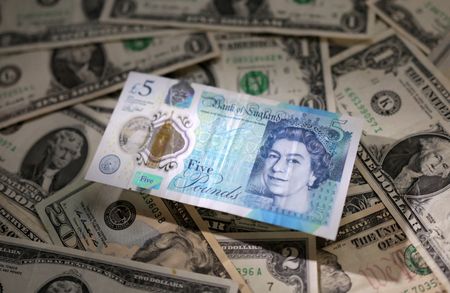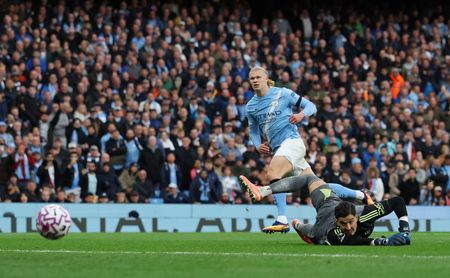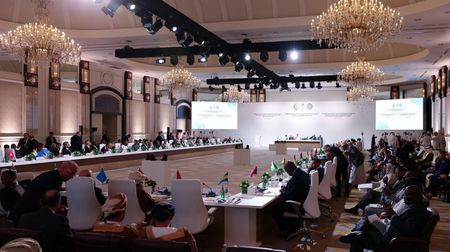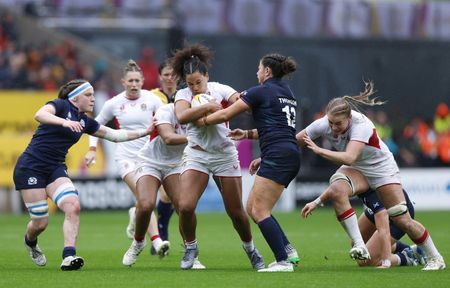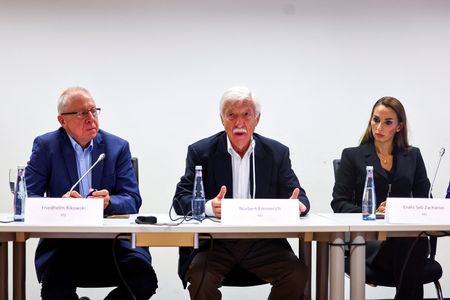By Greta Rosen Fondahn
(Reuters) -Sterling eased on Tuesday but stayed close to its recent two-month highs, as data showed accelerating British wage growth, reinforcing bets for a cautious rate cut path ahead for the Bank of England, despite a weak economy.
The pound was last down 0.2% against the dollar at $1.25995, but was not far from the $1.2635 level it touched on Monday, the highest since December 19.
British private-sector pay excluding bonuses – the BoE’s main gauge of domestic inflation pressure – rose by 6.2% compared with the same period a year earlier, the fastest pace in a year, the Office for National Statistics said.
Average weekly earnings, excluding bonuses, rose by 5.9% in the last three months of 2024 compared with the same period a year earlier. The increase marked the third straight monthly rise in wage pressures.
The pace of pay increases, remaining far above levels consistent with the BoE’s 2% inflation target, present a complication for the Bank of England, which has signalled its desire to cut interest rates.
“We think the ongoing strength in pay is likely to keep the BoE cautious, and we expect the BoE to remain on hold in March and deliver its next cut in May,” said Modupe Adegbembo, economist at Jefferies.
Investors slightly pared their rate cut bets following the data release, pricing in 58 basis points of easing from the BoE this year.
BoE Governor Andrew Bailey said on Tuesday however that the latest jobs market data does not change the central bank’s broad expectations for the economy.
Traders now turn their eyes to Wednesday’s UK inflation data, which Jefferies’ Adegbembo said would be “more instructive”.
The pound has so far risen 1.6% in February against the dollar, as traders factored in easing tariff fears, which have dented the greenback across the board.
Also in investor focus on Tuesday, U.S. and Russian officials met in Saudi Arabia’s capital Riyadh for talks aimed at ending the Ukraine war.
British Prime Minister Keir Starmer said on Monday it was crucial for all of Europe to spend more on defence.
Sterling touched a two-week high against the euro on Tuesday, but later reversed the gains. The single currency was last up marginally on the pound with one euro at 83.06 pence.
(Reporting by Greta Rosen Fondahn; Editing by Amanda Cooper and Angus MacSwan)

